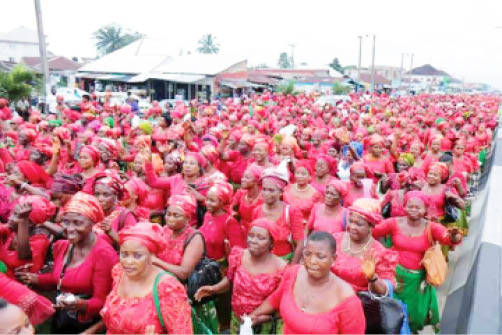Women are under represented in most countries worldwide. Women have inadequate opportunities in social participation, especially in striving for political rights and power in government and its numerous institutions.
Also, the social status of women is relatively poor compared to the men’s in different countries around the world, thus contributing to the atmosphere of inferiority of women in the society. This unfortunate tendency remains persistent, even though a few women are attaining politically elected status.
Research has revealed that as of January 2017, the global participation rate of women in national level parliaments was 23.3%. In 2013, women accounted for 8% of all national leaders and 2% of all presidential posts. However, a number of countries such as South Africa, Rwanda and Bolivia are exploring measures that may increase women’s participation in government at all levels – local to national.
Today, women are participating more actively in the political sphere than ever before as a result of political re-awakening and awareness but majority of the men, more on chauvinistic disposition, are preoccupied with the notion that decision making is exclusively for the men folk while the women are confined to taking directives. Fortunately, this notion is fast becoming a thing of the past because globally, women in politics have taken a higher dimension in developed nations.
Even back home, great women like, Margaret Ekpo, Olukoye Ransome-Kuti, Gambo Sawaba, Amina Muhammed, Florence Ita Give, Ngozi Okonjo-Iweala, Oby Ezekwesili, among others have played positive roles in the development of the country.
An analysis of data presented by the Independent National Electoral Commission (INEC) has also shown that in 1999, women recorded only 3% representation in contested offices. In 2003, the figure rose only slightly to 4%; followed by another slight increase to 6% in 2007.
The National Gender policy was developed in Nigeria in the year 2000 and revised in 2006 to build a society devoid of discrimination; where all citizens can harness their full potentials regardless of sex or circumstance.
The policy emphasises inter sectorial collaboration and stipulates that at least 30 percent of all positions in all establishments should be allocated to women, but how far has Nigeria gone toward attaining that percentage?
Though there has been some considerable progress in promoting gender equality and the empowerment of women in Nigeria, the progress continues to record snail speed at both federal and state levels.
As the 2019 elections draw nearer, the programme manager, Centre for Democracy and Development (CDD), Mr Yusuf Shamsudeen, while speaking at a workshop jointly organised by the centre and the UNWomen for journalists in Lokoja, the Kogi State capital, said, gender is a developmental issue, and stressed the need to guide the minds of the people so that there wouldn’t be discrimination between males and females based on gender.
He disclosed that at the National Assembly level, only 51 women are ocdcupying the the parliamentary positions of representatives despite the fact there have been plans and programmes to improve the rate of women.
Shamsudeen said gender and development tend to say that the male and female genders should be equals and have the same access to development while developmental journalism gives attention to the coverage of ideas, policies and activities that deal with improvement of the lives of the people.
Representative of UNWomen, James Brigila said one of the ways to promote women in politics is through the social media platform where journalists can share information about them.
Brigila said journalists should be able to correct stereotype and change the narratives to bring in more women into leadership positions and to be good ambassadors for women in politics.
The Commissioner of Women Affairs, Mrs Bolanle Amupitan, said there is need to domesticate women participation in all spheres of life and to improve on the issues of gender. “Apparently due to ignorance women are being segregated,” she noted.
“There is need to create more roles for women to participate in politics and a forum where gender issues are addressed to reposition women in the scheme of things.
She also said that the so-called women’s wings of political parties have a way of discriminating against the same women whose interest they are supposed to champion, explaining that the women leaders turn into a Mafia of sorts in some instances and called on the Ministry of Women Affairs to encourage the inclusion of women in all political offices decision making.
While reacting on the 35 percent affirmative action, she disclosed that there is need for inclusion of more women in political matters and appointments across the country.

 Join Daily Trust WhatsApp Community For Quick Access To News and Happenings Around You.
Join Daily Trust WhatsApp Community For Quick Access To News and Happenings Around You.


